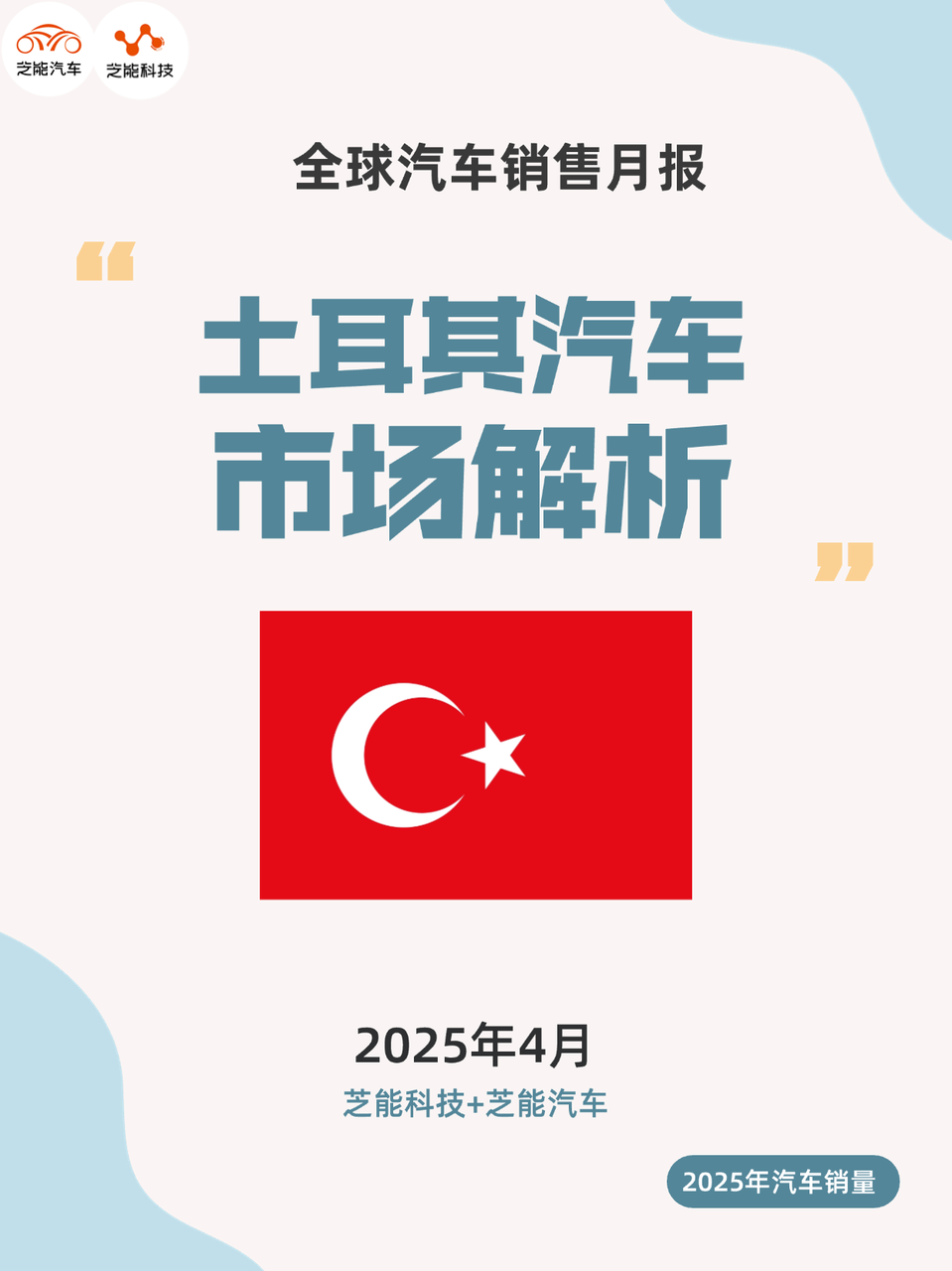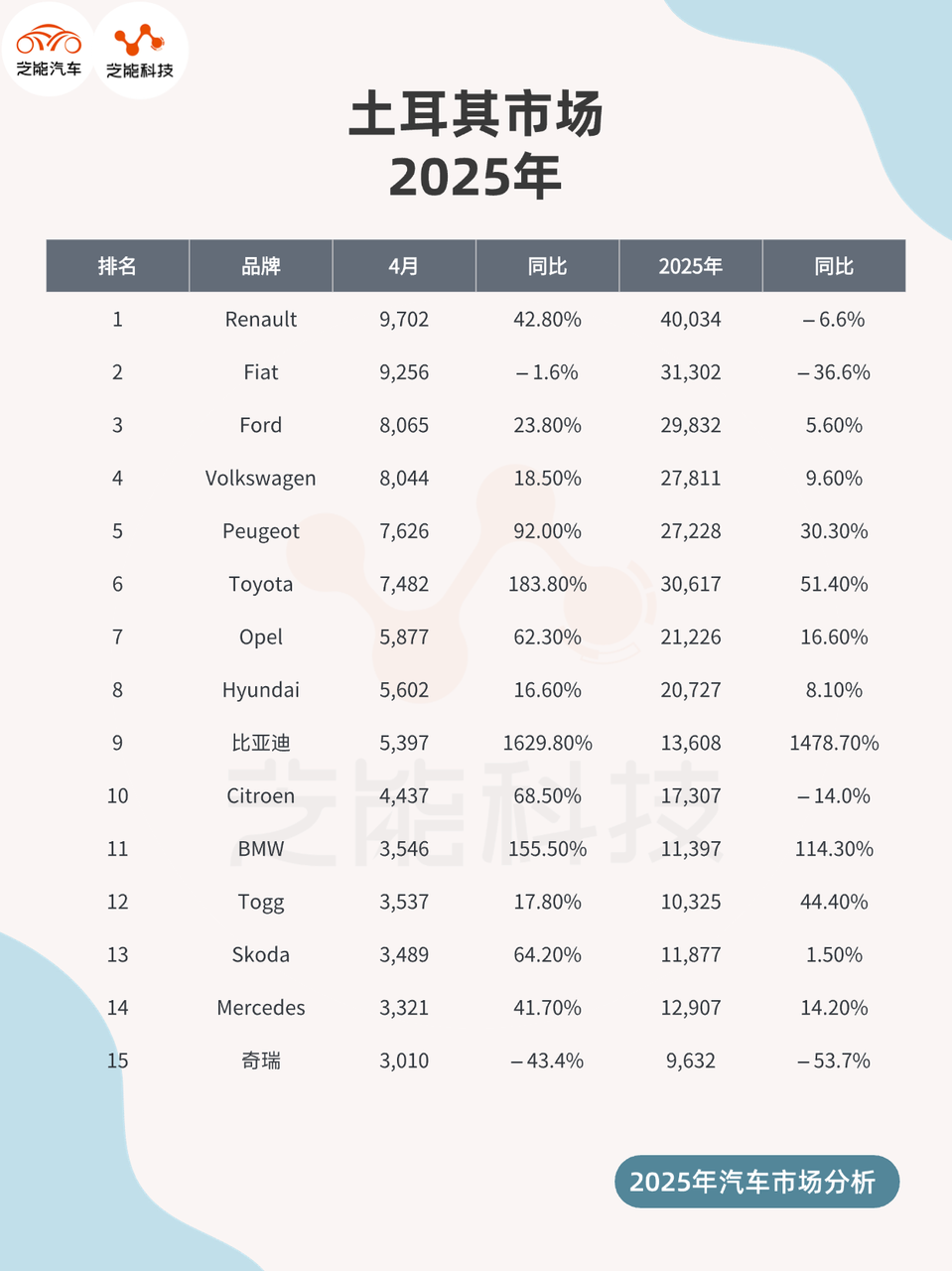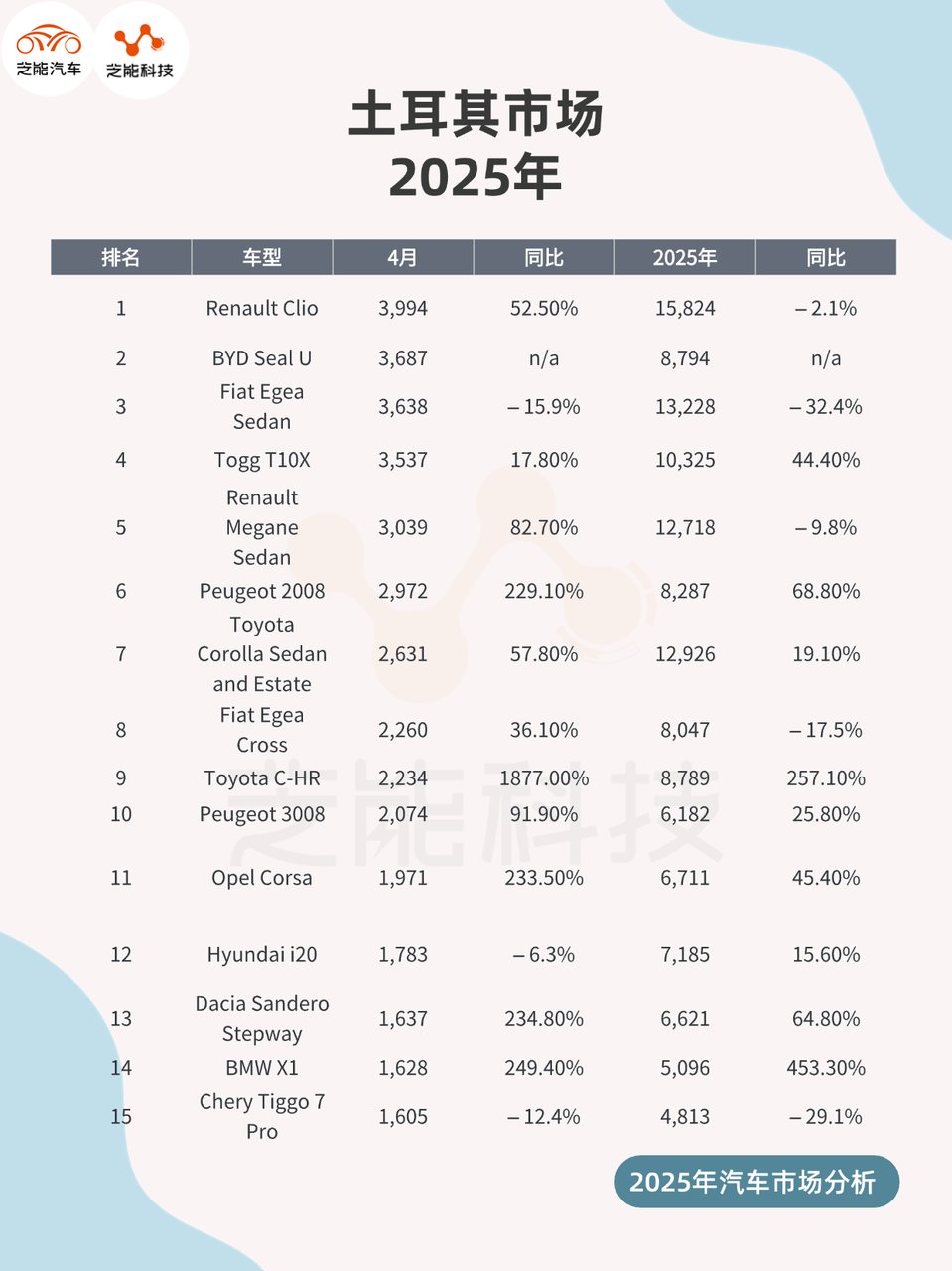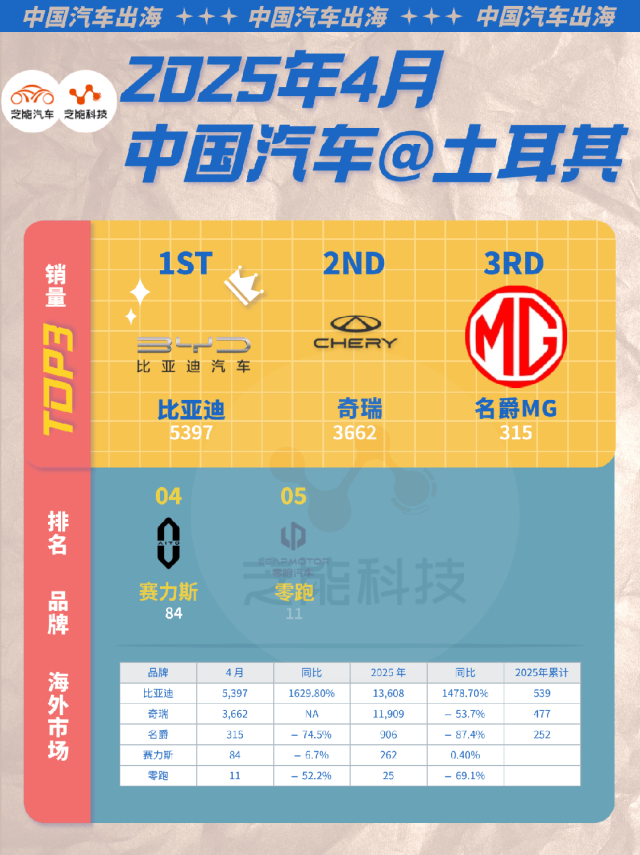Asia Auto Market | Chinese Automakers Surge into Turkish Market in April 2025: BYD Seal U Leads the Charge
![]() 05/14 2025
05/14 2025
![]() 503
503

In April 2025, the Turkish light vehicle market achieved a historic milestone, with monthly sales surpassing 100,000 units for the first time, marking a 38.8% year-on-year increase. BYD Seal U emerged as a formidable contender, securing second place on the monthly sales chart with a 4.3% market share, trailing only the traditional leader Renault Clio. This marked a significant breakthrough for Chinese auto brands in the Turkish market.
We will delve into the market overview, analyze brand and model competition, focus on the performance of Chinese brands, and explore the growth strategies and driving forces behind BYD, Chery, and others.
01
Turkish Market Fully Recovers, Electrification Wave Fuels Multi-Brand Surge
In April 2025, Turkish light vehicle registrations soared to 105,352 units, a 38.8% year-on-year increase, setting a new record for the month and achieving sales of over 100,000 units for the first time. This reflected a robust recovery in market confidence and consumer spending power in Turkey.
Cumulative sales for the first four months of the year stood at 381,626 units, a 2.7% increase over the same period in 2024, setting a new benchmark for the period.
From a brand perspective:
◎ Renault retained its top spot with 9,702 units (9.2%), experiencing a 42.8% year-on-year surge. ◎ Fiat, despite a slight month-on-month decline (-1.6%), maintained its second position in cumulative sales. ◎ Ford (+23.8%) and Volkswagen (+18.5%) fell short of the overall market's average growth rate but still demonstrated strong growth. ◎ Toyota shone with a remarkable 183.8% year-on-year increase, driven by its hybrid models and the new C-HR. ◎ Peugeot and Opel recorded year-on-year growth of 92% and 62.3%, respectively, solidifying their positions among European automakers.

In the model rankings:
◎ Renault Clio (+52.5%) retained its title as the best-selling model with a 4.7% market share. ◎ BYD Seal U emerged as the dark horse, jumping from 18th place last month to second, capturing a 4.3% market share, and surpassing Fiat Egea, Togg T10X, and Renault Megane sedans. The local brand Togg's flagship electric vehicle, T10X, showed resilience with a 17.8% year-on-year increase, ranking fourth.

Amidst the accelerating electrification trend, plug-in hybrid/pure electric models such as Toyota C-HR (+1877%), Peugeot 2008 (+229.1%), and BYD Seal U shone brightly, indicating a rapid rise in Turkish consumers' acceptance of new-generation electric vehicles, particularly in the SUV and crossover segments.
02
Collective Rise of Chinese Brands, BYD Leads the Way, Chery Faces Challenges

In the Turkish market in April 2025, Chinese auto brands collectively made significant strides. Among them, BYD stood out with its stellar performance, soaring to ninth place in the brand rankings with 5,397 units and a 5.1% market share, marking a 1629.8% year-on-year increase. This not only set a new record for BYD in the Turkish market but also marked its first entry into the top ten brand rankings.
In the first four months of 2025, BYD sold a cumulative total of 13,608 units, accounting for a 3.6% market share, with a year-on-year increase of up to 1478.7%. This growth rate far exceeded the market average, underscoring the recognition of the product strength of BYD Seal U, a "global strategic vehicle," among local consumers.
BYD's success in Turkey is attributable to the impressive performance of its Seal U model. With its pure electric platform, spacious interior, and intelligent features, Seal U has established a "beyond-price-segment" competitiveness in the mid-size electric SUV market, becoming the only pure electric SUV in Turkey that can compete with the local brand Togg. It also forms a strong synergy in terms of price, technical reliability, and brand image.
In contrast, while Chery (single brand) maintained its second position among Chinese brands with monthly sales of 3,010 units, its sales declined by 43.4% year-on-year, and cumulative sales for the first four months fell by 53.7% year-on-year. As an early entrant into the Turkish market in 2023, Chery once ranked among the top ten in 2024 but faced declining market share under the pressure of intensifying local competition and BYD's rapid rise in 2025, necessitating strategic adjustments.
Note: Including the Jetour brand, Chery sold a total of 3,662 units.
MG's sales this month amounted to only 315 units, marking a 74.5% year-on-year decline. Apart from BYD and Chery, other Chinese brands have yet to establish a sustainable market presence, with core issues stemming from insufficient product matrices and localization adaptability.
The Turkish government's support for the local brand Togg and the specificities of EU import rules mean that Chinese brands must differentiate themselves beyond cost-effectiveness in terms of brand building.
BYD's current success underscores the huge potential for high-end intelligent electric SUVs in Turkey, providing a valuable reference for other Chinese brands.
Conclusion
Seal U Breaks the Barrier, Chinese Automakers Enter a Strategic Window Period in Turkey
In April 2025, the explosive growth of the Turkish market sent a clear signal to global automakers: emerging markets are accelerating their electrification transformation, and Turkey, as a pivotal link between Europe and Asia, is emerging as a gateway for Chinese brands to expand into European markets.
BYD Seal U's success not only underscores the strength of its product but also signifies that Chinese auto brands are beginning to exert significant influence in peripheral European markets. Sustaining technological advantages, strengthening localization in after-sales and distribution channels, and shaping a distinct brand identity will pose new challenges for BYD and the broader Chinese auto industry.
Amidst the new energy transition and geo-economic restructuring, the Turkish market could serve as an "accelerator" for Chinese brands' global expansion, with Seal U serving as the key to unlocking this potential.







